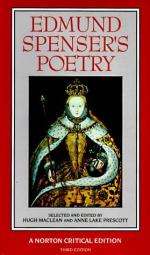|
This section contains 10,839 words (approx. 37 pages at 300 words per page) |

|
SOURCE: "Imagination in the English Renaissance: Psychology and Poetic," in Studies in the Renaissance, Vol. V, 1989, pp. 49-73.
Below, Rossky discusses the Renaissance notion of the poet's proper use of imagination—that imaginative writing must be based upon accurate perceptions, but that controlled and disciplined artifice can actually aid the poet in reconstructing objective, real events.
Shakespeare couples lunatic, lover, and poet as 'of imagination all compact' (Dream v.i.7-8); Spenser finds that Phantasies' chamber is filled with 'leasings, tales, and lies' (F.Q. II.ix.51.9) and that his eyes seem 'mad or foolish' (F.Q. II.ix.52.7); Drayton speaks of the 'doting trumperie' of imagination;1 when men's minds become 'inflamed', says Bacon, 'it is all done by stimulating the imagination till it becomes ungovernable, and not only sets reason at nought, but offers violence to it'.2 These views of imagination and its activity, echoed in other...
|
This section contains 10,839 words (approx. 37 pages at 300 words per page) |

|


